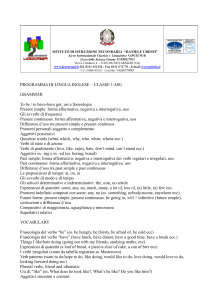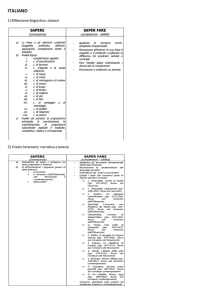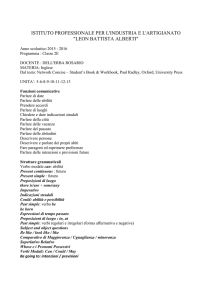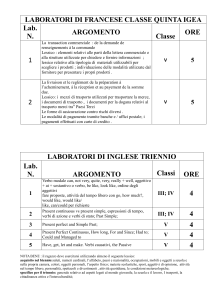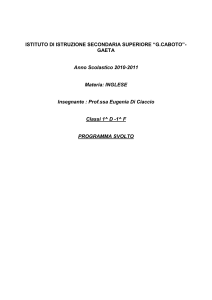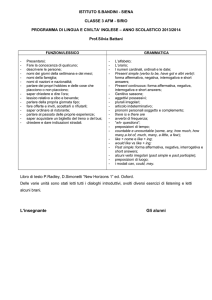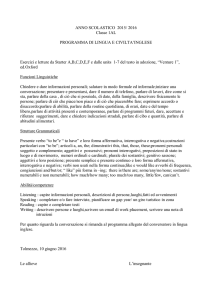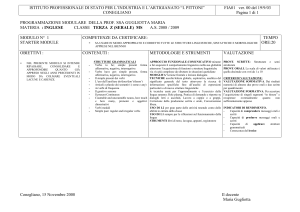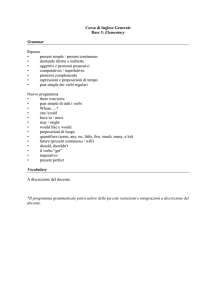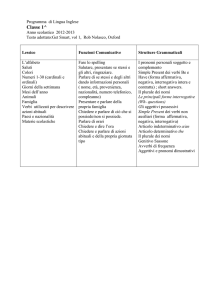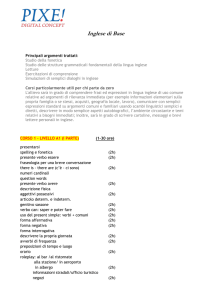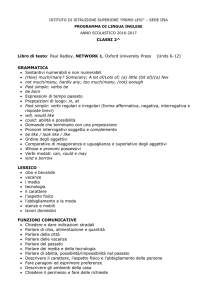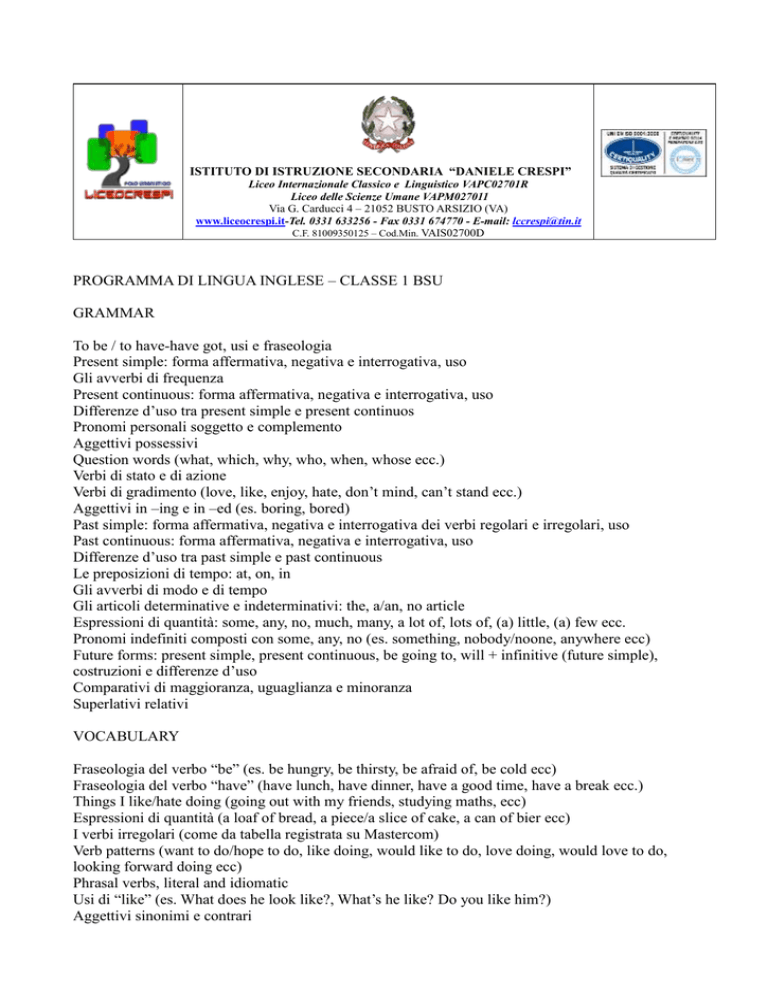
ISTITUTO DI ISTRUZIONE SECONDARIA “DANIELE CRESPI”
Liceo Internazionale Classico e Linguistico VAPC02701R
Liceo delle Scienze Umane VAPM027011
Via G. Carducci 4 – 21052 BUSTO ARSIZIO (VA)
www.liceocrespi.it-Tel. 0331 633256 - Fax 0331 674770 - E-mail: [email protected]
C.F. 81009350125 – Cod.Min. VAIS02700D
PROGRAMMA DI LINGUA INGLESE – CLASSE 1 BSU
GRAMMAR
To be / to have-have got, usi e fraseologia
Present simple: forma affermativa, negativa e interrogativa, uso
Gli avverbi di frequenza
Present continuous: forma affermativa, negativa e interrogativa, uso
Differenze d’uso tra present simple e present continuos
Pronomi personali soggetto e complemento
Aggettivi possessivi
Question words (what, which, why, who, when, whose ecc.)
Verbi di stato e di azione
Verbi di gradimento (love, like, enjoy, hate, don’t mind, can’t stand ecc.)
Aggettivi in –ing e in –ed (es. boring, bored)
Past simple: forma affermativa, negativa e interrogativa dei verbi regolari e irregolari, uso
Past continuous: forma affermativa, negativa e interrogativa, uso
Differenze d’uso tra past simple e past continuous
Le preposizioni di tempo: at, on, in
Gli avverbi di modo e di tempo
Gli articoli determinative e indeterminativi: the, a/an, no article
Espressioni di quantità: some, any, no, much, many, a lot of, lots of, (a) little, (a) few ecc.
Pronomi indefiniti composti con some, any, no (es. something, nobody/noone, anywhere ecc)
Future forms: present simple, present continuous, be going to, will + infinitive (future simple),
costruzioni e differenze d’uso
Comparativi di maggioranza, uguaglianza e minoranza
Superlativi relativi
VOCABULARY
Fraseologia del verbo “be” (es. be hungry, be thirsty, be afraid of, be cold ecc)
Fraseologia del verbo “have” (have lunch, have dinner, have a good time, have a break ecc.)
Things I like/hate doing (going out with my friends, studying maths, ecc)
Espressioni di quantità (a loaf of bread, a piece/a slice of cake, a can of bier ecc)
I verbi irregolari (come da tabella registrata su Mastercom)
Verb patterns (want to do/hope to do, like doing, would like to do, love doing, would love to do,
looking forward doing ecc)
Phrasal verbs, literal and idiomatic
Usi di “like” (es. What does he look like?, What’s he like? Do you like him?)
Aggettivi sinonimi e contrari
I vocaboli delle seguenti letture su Headway:
“Blind date” unit 1, “Mami Rock”,“Superjam Mllionaire”, “How happy are you” “Two neighbours”
unit 2, “Waking the Amazon” “Cho’s story” “Ed’s blog” “Steven Slater flight attendant” unit 3, “An
extraordinary ambition” “My grandfather’s shop” “No ordinary place to eat” “Britain’s favourite
meal”(workbook) unit 4, “I’d like to…”, “Palina, the girl with two families” unit 5, “Tell me about
her”, “Three great things to do in London” (workbook) unit 6.
Libri di testo:
John and Liz Soars “Headway digital pre-intermediate fourth edition” Oxford University Press
Invernizzi, Villani, Mastrantonio, Hill “Top Grammar Upgrade” Helblings Languages
Busto Arsizio, 3 giugno 2015
Il docente
I rappresentanti di classe
…………………………………………
………………………………………
………………………………………..

